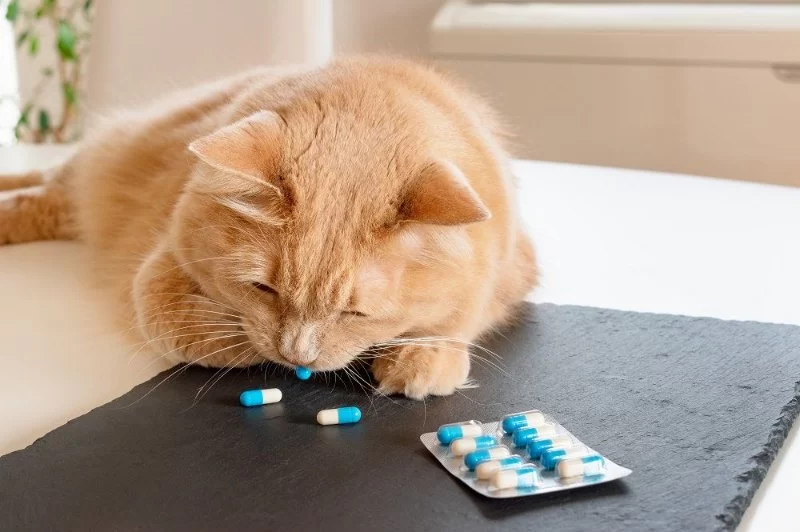- #feline-metabolic-disorders - Recognizing Feline Metabolic Disorders
- #treating-metabolic-disorders-in-cats - How to Treat Feline Metabolic Disorders
- #pet-feline-health-care - Caring for Your Cat’s Health
- #recognizing-cat-metabolic-disorders - Identifying Symptoms of Metabolic Disorders in Cats
Recognizing Feline Metabolic Disorders: What You Need to Know
Feline metabolic disorders are a common yet often overlooked health concern that can affect the overall well-being of your pet cat. These disorders can cause a wide range of symptoms, from weight loss to lethargy and even changes in appetite. Understanding the signs and symptoms of metabolic issues is crucial for early intervention and effective treatment. In this article, we’ll delve into the most common feline metabolic disorders, how to recognize them, and steps you can take to address these health issues naturally.
How to Treat Metabolic Disorders in Cats
Treating metabolic disorders in cats typically involves a combination of veterinary care and lifestyle changes. Depending on the severity and type of metabolic disorder your cat is experiencing, treatment may vary. Below are some effective ways to manage metabolic disorders in cats:
1. Veterinary Diagnosis and Medication
Consulting with a veterinarian is the first step in diagnosing a metabolic disorder. Your vet will perform a thorough physical examination and may recommend blood tests, urine tests, and imaging studies to determine the cause of the symptoms. Medications may be prescribed to help manage symptoms, restore hormone balance, and treat underlying conditions such as thyroid disorders or diabetes.
2. Dietary Adjustments
Diet plays a critical role in managing metabolic disorders in cats. For instance, cats with diabetes may benefit from a high-protein, low-carbohydrate diet to regulate blood sugar levels. Specially formulated foods may also be recommended to address deficiencies or imbalances in metabolism. Always consult your vet for guidance on the best dietary plan for your cat's condition.
3. Herbal and Natural Remedies
In addition to conventional treatments, many pet owners are seeking natural remedies to support their cat's metabolism. Certain herbs, like milk thistle and dandelion root, are known for their liver-supporting and detoxifying properties, which can help balance metabolic functions. Always consult with your veterinarian before introducing any herbal treatments to ensure they are safe for your cat’s condition.
Caring for Your Cat’s Health: Prevention is Key
Preventing metabolic disorders before they occur is always the best approach. Here are a few key health care practices to keep your cat healthy and reduce the risk of developing metabolic issues:
1. Regular Vet Checkups
Routine checkups with your veterinarian can help catch any early signs of metabolic disorders. Regular blood work, especially for older cats, can provide important insights into kidney function, thyroid levels, and other metabolic parameters. Preventative care helps to detect issues before they become severe.
2. Balanced Nutrition
A balanced, well-rounded diet is essential for maintaining your cat’s overall health. High-quality cat food with the right nutrients, including taurine and essential fatty acids, supports proper metabolism and prevents deficiencies. Avoid overfeeding and ensure that your cat’s diet is tailored to its specific health needs.
3. Exercise and Mental Stimulation
Physical activity and mental engagement are important for maintaining your cat’s overall health. Interactive play, puzzle feeders, and even walking on a leash (for adventurous cats) can help keep your cat's weight in check and prevent obesity, a major contributor to metabolic issues.
Identifying Symptoms of Metabolic Disorders in Cats
Recognizing the signs of metabolic disorders early can make a huge difference in your cat’s treatment and quality of life. Some common symptoms to watch for include:
- Sudden weight loss or gain
- Increased thirst and urination
- Changes in appetite (either excessive hunger or loss of appetite)
- Vomiting or diarrhea
- Lethargy or decreased activity levels
- Hair loss or changes in coat quality
- Behavioral changes, such as irritability or confusion
If you notice any of these symptoms, it’s important to schedule an appointment with your veterinarian for a proper diagnosis and treatment plan. Early intervention can prevent more serious complications and improve your cat’s health outcomes.
If you are concerned about your cat's health and need personalized advice or treatment options for metabolic disorders, visit Hidden Brook Veterinary for the best products and services for your furry friend.












